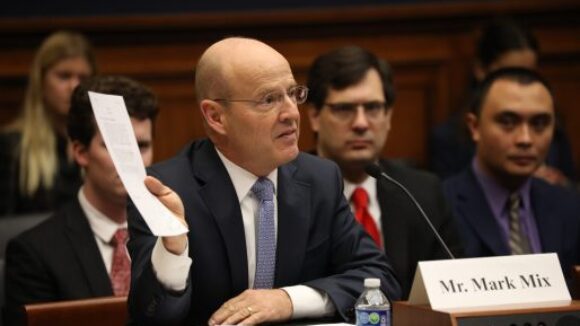The Washington Examiner is running a five-part series this week regarding California’s ongoing slide from an economic leader to an economic laggard. One of the key factors, the Examiner finds, is the malignant influence of the state’s government union officials, who under California law wield the power to force well over a million public servants to accept union monopoly “representation” at the bargaining table and pay union dues as a condition of employment.
Wednesday’s segment focuses on the extraordinarily inefficient K-12 public schools in California. Several decades ago, the Golden State’s schools were widely regarded as ranking among the best in the nation. Few expected the state’s educational reputation to enter a longterm decline in 1975, when during his first stint as California governor Democrat Jerry Brown signed the Rodda Act, handing government union bosses “exclusive”-bargaining power over teachers.
But over the past 38 years, California taxpayers have gotten less and less for the dollars they pour into the state’s public education system:
By 1992, the first year for which state-by-state comparisons are available, California ranked second to last among states tested (ahead of only Mississippi), in reading proficiency among fourth-graders.
Since then, California per pupil education spending has continued to rise, and student test scores have not. In 2011, the most recent year available, California eighth-graders finished 48th in reading, ahead of just Louisiana and Mississippi, and 48th in math, ahead of just Alabama and Mississippi. Perhaps California should change its state motto to “Thank God for Mississippi.”
One big reason California’s highly paid teachers are failing to educate California’s public school students is that their pay has nothing to do with their ability to educate kids.
Thanks to union contracts, teacher pay is based on seniority, not performance. Well-performing teachers cannot be rewarded. Regardless of how well a teacher performs on the job, pay is strictly based on time served. Even worse, on those rare occasions when California schools do have to cut staff, firings are based on seniority too. Many effective young teachers got the boot during the state’s latest economic downturn, whereas older ineffective teachers were allowed to hang on.
The CTA [that is, the National Education Association-affiliated California Teacher Association union] has fought every effort to reform how California teachers are paid and held accountable for their performance. The union resists even modest and reasonable changes as the proverbial camel’s nose under the tent. In 2012, CTA blocked a bill that would have made it easier to fire teachers accused of “serious and egregious” conduct involving sex abuse, drugs or violence toward children. Currently, teachers accused of such offenses are sent to “rubber rooms” where they are paid to do nothing, and can drag out an appeals process for years before being fired.
California In Crisis: California’s expensive education failure


